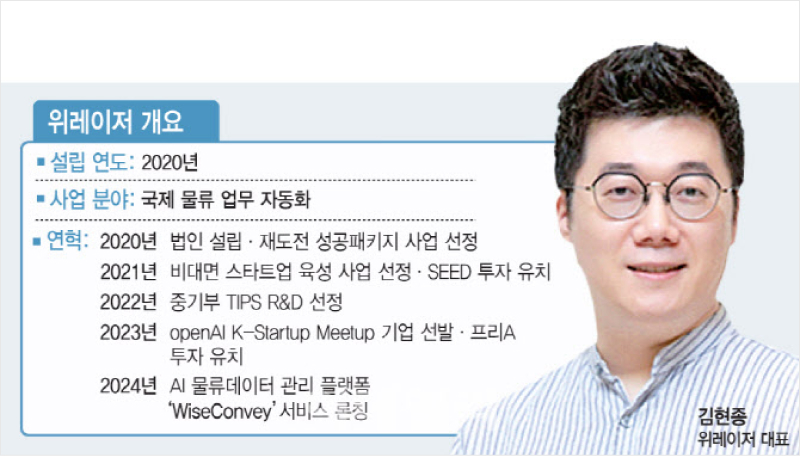Press Room
"When OpenAI was looking for 'vertical industries', I became confident in our business"
Update 2024.04.08

[Edaily Reporter Kim Young-hwan] "When OpenAI said that it would be difficult to survive without experts in specific fields, I gained confidence in weraser's business model," said Kim Hyun-jong, CEO of weraser. Kim visited OpenAI headquarters in Silicon Valley last month to attend the 'K-Startup & OpenAI Matching Day' and explore ways of cooperation between the two companies. While Kim was in the middle of his presentation, Sam Altman, CEO of OpenAI, suddenly appeared at the venue. It was an unexpected visit, although not entirely surprising.
During the brief 20-minute session, Kim had the opportunity to engage in a Q&A with OpenAI. Kim said, "I asked what was most important for companies using AI technology, and they responded that AI shouldn't be seen as a technological hurdle." He added, "I gained confidence from their answer that we should use AI to pioneer specialized areas in our respective fields."
weraser is a startup that operates 'WiseConvey', an automation platform that applies vision AI to shipping document processing. International logistics has a strong conservative tendency due to its long history. Various logistics-related documents have different formats for each company, and traditionally, people have had to manually check and input this information.
WiseConvey automated this process using vision AI and large language models (LLM) like ChatGPT. Vision AI reads documents sent by Company A, and LLM classifies the information to create new documents tailored to Company B's platform. This not only saves time but also reduces error rates.
Kim himself has about 10 years of experience working in a shipping company. With his interest in vision AI technology, Kim saw the potential to become an expert in a specific area of the shipping and logistics industry that was still operating in traditional ways. Particularly, small-scale international logistics forwarding companies welcomed WiseConvey from a manpower utilization perspective.
Kim said, "While logistics forwarding requires a license, it's a reported business, so the entry barrier is relatively low." He confidently added, "We're gaining attention for automating simple, repetitive tasks done by humans. In the future, even DHL, FedEx, or post offices could become our customers."
To achieve this, a higher level of AI model is needed. This is why weraser needs collaboration with OpenAI. Kim explained, "The service requires the speed of 'ChatGPT 3.5', but processing time increases when uploading in bulk. We need even higher speeds to expand to lightweight models."
What benefits can OpenAI gain in return? Kim explained, "OpenAI wants to quickly find cases where their technology has actually changed real life." Despite high interest in AI, it hasn't yet led to revolutionary changes when applied to real life.
Kim emphasized, "OpenAI also needs tangible success stories. weraser is part of the process of proving how OpenAI can change lives or industries with ChatGPT."
Looking ahead, as more companies use the weraser platform, Kim plans to expand the business into a logistics data management platform based on this data. Kim said, "We can preemptively respond by identifying which items are being imported and exported the most, where they're currently going, and which areas are experiencing surpluses." He added, "We could also provide a roadmap that shows the global cargo volume and logistics flow at a glance."



